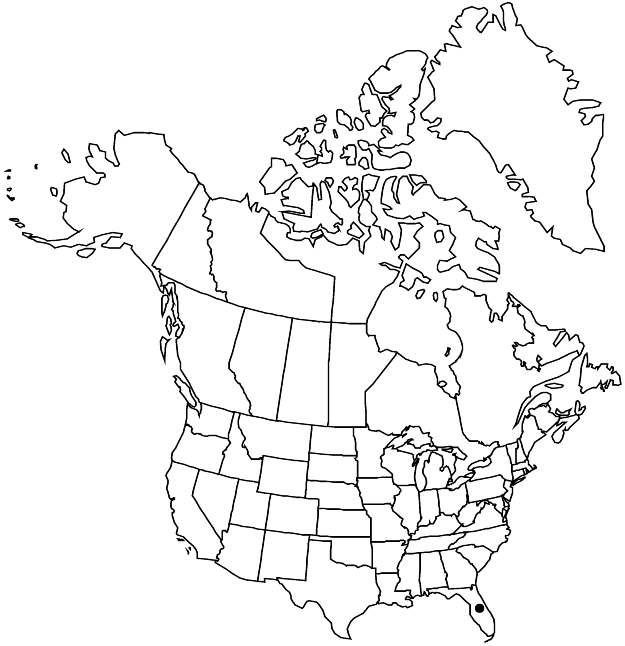Difference between revisions of "Polygonella ciliata"
in A. P. de Candolle and A. L. P. P. de Candolle, Prodr. 14: 81. 1856.
FNA>Volume Importer |
imported>Volume Importer |
||
| (6 intermediate revisions by 2 users not shown) | |||
| Line 1: | Line 1: | ||
{{Treatment/ID | {{Treatment/ID | ||
|accepted_name=Polygonella ciliata | |accepted_name=Polygonella ciliata | ||
| − | |accepted_authority=Meisner | + | |accepted_authority=Meisner |
|publications={{Treatment/Publication | |publications={{Treatment/Publication | ||
|title=in A. P. de Candolle and A. L. P. P. de Candolle, Prodr. | |title=in A. P. de Candolle and A. L. P. P. de Candolle, Prodr. | ||
| Line 8: | Line 8: | ||
}} | }} | ||
|common_names=Fringed jointweed | |common_names=Fringed jointweed | ||
| + | |special_status={{Treatment/ID/Special_status | ||
| + | |code=E | ||
| + | |label=Endemic | ||
| + | }} | ||
|basionyms= | |basionyms= | ||
|synonyms= | |synonyms= | ||
| Line 32: | Line 36: | ||
-->{{#Taxon: | -->{{#Taxon: | ||
name=Polygonella ciliata | name=Polygonella ciliata | ||
| − | + | |authority=Meisner | |
| − | |authority=Meisner | ||
|rank=species | |rank=species | ||
|parent rank=genus | |parent rank=genus | ||
| Line 46: | Line 49: | ||
|publication title=in A. P. de Candolle and A. L. P. P. de Candolle, Prodr. | |publication title=in A. P. de Candolle and A. L. P. P. de Candolle, Prodr. | ||
|publication year=1856 | |publication year=1856 | ||
| − | |special status= | + | |special status=Endemic |
| − | |source xml=https:// | + | |source xml=https://bitbucket.org/aafc-mbb/fna-data-curation/src/2e0870ddd59836b60bcf96646a41e87ea5a5943a/coarse_grained_fna_xml/V5/V5_1096.xml |
|subfamily=Polygonaceae subfam. Polygonoideae | |subfamily=Polygonaceae subfam. Polygonoideae | ||
|genus=Polygonella | |genus=Polygonella | ||
Latest revision as of 22:08, 5 November 2020
Herbs, annual, gynodioecious, 2.5–11 dm. Stems erect, usually simple, sometimes branched distally, glabrous or minutely pubescent. Leaves fugaceous; ocrea margins ciliate; blade linear, larger ones falcate, (3–)11–33(–51) × 0.3–1.3(–3) mm, base barely tapered, margins not hyaline, apex acuminate, glabrous. Inflorescences (10–)20–35(–45) mm; ocreola encircling rachis, only the base adnate to rachis, apex acuminate. Pedicels spreading to slightly reflexed in anthesis, sharply reflexed in fruit, 0.3–1.1 mm, as long or much longer than subtending ocreola. Flowers bisexual or pistillate; outer tepals appressed in anthesis and fruit, white, distal portion of midrib often inconspicuously greenish, narrowly oblong, 0.9–1.5 mm in anthesis, margins entire; inner tepals appressed in anthesis and fruit, white, narrowly oblong, 0.8–1.5 mm in anthesis, margins entire; filaments dimorphic; anthers deep red; styles and stigmas ca. 0.1 mm in anthesis. Achenes exserted, reddish brown to yellow-brown, 3-gonous, 1.7–3.4 × 0.6–0.9 mm, shiny, smooth. 2n = 22.
Phenology: Flowering Sep–Dec.
Habitat: Sandy pinelands and pine barrens
Elevation: 0-50 m
Discussion
Selected References
None.
